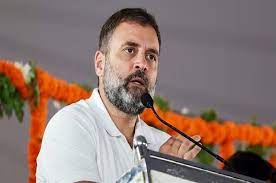
Congress leader Rahul Gandhi has approached the Supreme Court to stay his two-year conviction in the ‘Modi surname’ remark case, which resulted from a criminal defamation suit filed by Gujarat BJP MLA Purnesh Ishwarbhai Modi. The case pertains to a rally in Karnataka’s Kolar in April 2019, where Rahul Gandhi took a dig at Prime Minister Narendra Modi, questioning why all thieves had the surname ‘Modi.’ Mr. Gandhi, while maintaining his innocence, argued that the conviction is unsustainable, and he refused to apologize for the remarks. He urged the court to stay his conviction to allow him to participate in the ongoing Lok Sabha sittings.
In his affidavit before the Supreme Court, Rahul Gandhi stated that the complainant had used slanderous terms such as ‘arrogant’ to describe him simply because he had refused to apologize. He called the use of criminal process to force an apology a gross abuse of the judicial process. The affidavit further highlighted that the offense was trivial, and the consequence of his conviction would cause irreparable harm to his role as an elected Member of Parliament.
The ‘Modi surname’ remark case has seen heated arguments from both sides. The complainant accused Rahul Gandhi of displaying arrogance and insensitivity to the offended community in his statements, while the Congress leader challenged the Gujarat High Court’s order, which upheld his conviction.
The Supreme Court has sought responses from the Gujarat Government and the complainant regarding Mr. Gandhi’s appeal. Earlier, the Gujarat High Court had refused to stay his conviction, leading to his disqualification as an MP from Kerala’s Wayanad.
The case has drawn attention for the maximum sentence of two years imposed in a criminal defamation case, which Rahul Gandhi claims is unprecedented. He also raised concerns over the apparent bias, as the complainant, who shares the same surname, failed to prove any specific or personal damage due to the remark.
Rahul Gandhi’s plea for a stay on his conviction is being closely watched, as it could have implications on free speech and defamation laws in the country. The Supreme Court is expected to review the case and make a decision on the stay request soon.
Sources By Agencies


